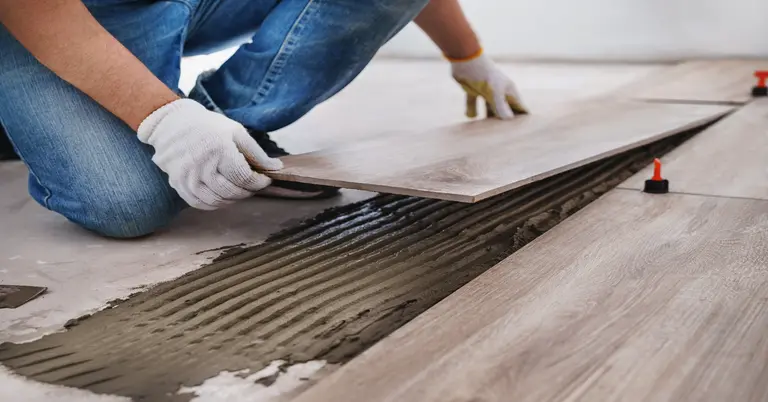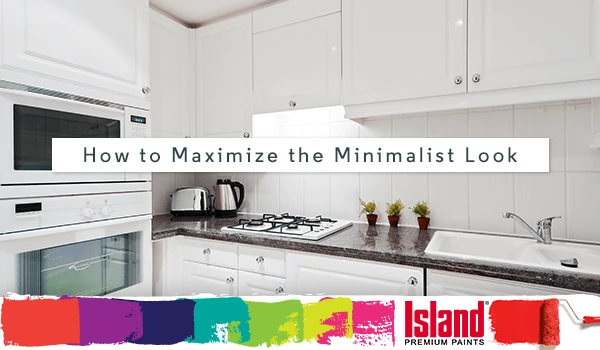Home Decorating Tips


Home Decorating Tips
Choosing the Right Type of Tile Adhesive for Your Spaces
Posted on July 14, 2025
You finally found the perfect tile! The colors are spot on, the texture feels just right, and the pattern brings your whole space together. But before you start tiling, there’s one often-overlooked detail that can make or break your project: the tile adhesive.
It might not be the most exciting part of your renovation, but the adhesive is what keeps your tiles firmly in place. It helps prevent cracks, resists moisture, and ensures your tilework lasts for years. On the flip side, using the wrong adhesive can lead to costly and frustrating repairs
Here’s what you need to know about choosing the right tile adhesive. Moreover, find out why Equip Tile Adhesive could be just what you’re looking for.
What Are Tile Adhesives?
Tile adhesives are bonding agents used to glue tiles onto surfaces such as floors, walls, or countertops. They help tiles stay in place by forming a strong bond with the surface underneath (called the substrate). In addition to providing adhesion, tile adhesives help prevent tile shedding. Shedding refers to the detachment of tile either from the surface layer or the entire tile, usually due to poor adhesion.
Tile adhesives can come in different forms, such as ready-mixed pastes or dry powders (that require mixing before use). The type you choose depends on the tile material, the surface, and the area where you’ll place the tiles.
Different Types of Tile Adhesive
The three most common adhesives are epoxy mortar, mastic, and thin-set mortar. Each of them comes with advantages and recommended uses.
Epoxy Mortar
Epoxy mortar is made from resin and a hardener. When combined, these chemicals create a durable bond that is waterproof, resistant to stains, and non-reactive to chemicals. Because of these properties, epoxy adhesives are commonly used in industrial spaces such as commercial kitchens, laboratories, swimming pools, and other high-moisture or high-traffic areas.
The downside of using epoxy tile adhesives? They are more expensive than standard adhesives. Moreover, they require precise mixing and fast application before the material begins to set. Cleanup can also be difficult, as they can only be removed by special solvents. For these reasons, epoxy is typically reserved for specialized or commercial installations, rather than everyday home tile projects.
Mastic
Mastic, also known as ceramic tile glue, is a ready-to-use adhesive that works well for indoor wall tiling—especially in dry or slightly damp areas. It’s a popular choice for projects like kitchen backsplashes (the wall behind your sink, stove, or counter), bathroom walls (as long as it’s not inside the shower), and other decorative tile installations.
Because mastic is super sticky, it’s especially useful for vertical surfaces like walls. It’s also easy to apply and clean up, making it great for quick projects with small tiles or mosaics. However, it’s not suitable for wet areas like shower stalls, pools, or places exposed to high heat. And if you’re working in cold weather, be aware that it may take longer to set.
Thin-set Mortar
Cement-based thin-set mortar is by far the most widely used tile adhesive in both residential and commercial projects worldwide. Made from a blend of Portland cement, sand, and additives, thin-set mortar offers a strong, durable, and versatile bond suitable for nearly every type of tile installation.
Thin-set is applied in a relatively thin layer compared to traditional mortars. This makes it easier to spread evenly across surfaces without creating uneven spots. Despite its thinner consistency, it’s thick enough to avoid seeping into the grout lines between tiles.
There are two types of thin-set mortar: unmodified and modified. Unmodified thin-set mortars contain just the basic ingredients—cement, sand, and water-retaining agents. On the other hand, modified thin-set mortars include added polymers, such as latex or acrylic. These polymers improve bonding strength and flexibility. In some cases, chemical-resistant additives are also included for specialized installations.
Which Tile Adhesive Should You Choose?
Not sure which one to go with? For general-purpose tile installations, thin-set mortar is typically recommended. Again, it provides excellent bond strength, resists moisture penetration, and is suitable for use on both vertical and horizontal surfaces. Plus, it performs well in both interior and exterior environments. It also offers a cost advantage compared to epoxy-based adhesives.
If you’re looking for a high-quality option, consider Equip Tile Adhesive from Island Premium Paints. This cement-bound adhesive is ideal for securing ceramic tiles, marble, granite, and natural stones to walls or floors. Available in a convenient 25 kg bag, you can use it for everything from small home upgrades to larger construction projects.
Choose quality. Choose reliability. Choose Island Premium Paints.
#IslandPremiumQuality #DoesItBetter
References:
https://www.thespruce.com/tile-mortar-guide-thinset-mastic-and-epoxy-1821651
https://mtcopeland.com/blog/what-is-thinset-advantages-and-disadvantages/
https://www.sciencedirect.com/topics/engineering/epoxy-mortar
Our Products
Our line of high quality paints and products will give your home or project the vibrancy it needs.
Explore Colors
Ready to explore colorful possibiliies today? View our popular paint colo combination palettes for great color schemes and room design ideas for interior and exteriors.



